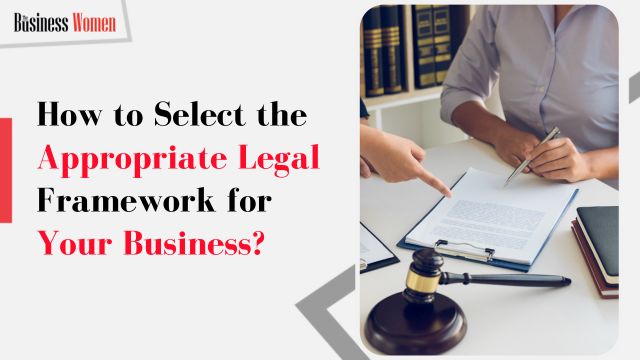How to Select the Appropriate Legal Framework for Your Business?
Did you know? As a woman entrepreneur, choosing the right legal structure for your business, be it sole proprietorship, partnership, corporation, or LLC, is a pivotal decision. Before formalising your company, it’s essential to determine the most suitable legal structure that aligns with your goals. The selected structure holds legal significance, impacting critical areas such as tax obligations and personal liability in case of any challenges.
Exploring Different Legal Structures for Your Business
When it comes to establishing the legal framework for your business, there are several options to consider:
Sole Proprietorship
If your plan is to own and operate the business as an individual and take full responsibility for its debts and obligations, you can opt for a sole proprietorship. However, it’s crucial to note that this choice can directly impact your personal credit.
Partnership
A business partnership involves two or more individuals who share personal liability as owners. Collaborating with a business partner who possesses complementary skills can be advantageous and contribute to your business’s success.
Corporation
When you’re contemplating the legal structure, consider the merits and drawbacks of forming a corporation, whether it’s an S corporation or a C corporation. This option is suitable if you wish to separate personal liability from your company’s liabilities. Generally, a corporation establishes the business as a distinct entity from its owners. Corporations have the ability to own property, assume liabilities, pay taxes, enter contracts, and engage in legal actions, much like individuals. C corporations, in particular, are well-suited for new businesses aiming to go public or secure funding from venture capitalists in the near future.
Limited Liability Company (LLC)
For many small businesses, the limited liability company (LLC) is a popular choice. It combines the legal protections of a corporation with the tax advantages of a partnership.
Factors to Contemplate Before Deciding on a Legal Structure
Choosing the right legal structure for your business is a pivotal decision with long-term consequences. Here are key factors to weigh in your decision-making process:
Business Type and Size
Understand the nature and scale of your business. Some legal structures are better suited for small enterprises, while others may be more fitting for larger businesses or those with intricate ownership structures.
Liability Protection
Consider the level of personal liability protection you desire. Certain structures, like corporations and LLCs, offer a separation between personal and business liabilities, safeguarding your personal assets in case of business debts or legal issues.
Tax Implications
Evaluate the tax consequences associated with each legal structure. Different structures come with varying tax obligations and benefits. Sole proprietorships and partnerships feature pass-through taxation, where business profits and losses are reported on the owners’ personal tax returns. In contrast, corporations are subject to double taxation, where both the corporation and its owners pay taxes on profits.
Ownership and Control
Determine how you want to structure ownership and control within your business. Sole proprietorships and partnerships grant more personal control, while corporations and LLCs offer flexibility in distributing ownership interests and attracting investors.
Future Goals
Consider your long-term aspirations for the business. If you plan to seek external investment, go public, or have a complex ownership structure, a corporation may be the right choice. Conversely, if simplicity and flexibility are your priorities, an LLC might be a better fit.
Costs and Administrative Requirements
Be aware of the costs and administrative obligations associated with each legal structure. Some structures, like corporations, involve more extensive reporting and compliance requirements, which can translate to additional expenses.
Professional Guidance
Seek advice from a business or legal advisor. They can offer personalised guidance tailored to your specific circumstances and assist you in navigating the legal intricacies inherent in selecting a legal structure.
Conclusion
Ultimately, the decision regarding which legal entity is most suitable for your business, taking into account your current needs and future objectives, rests with you. It’s essential to familiarise yourself with the available legal business structures. If you’re uncertain, it’s highly advisable to seek guidance from a business or legal advisor who can provide invaluable insights and recommendations based on your unique situation.

